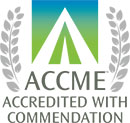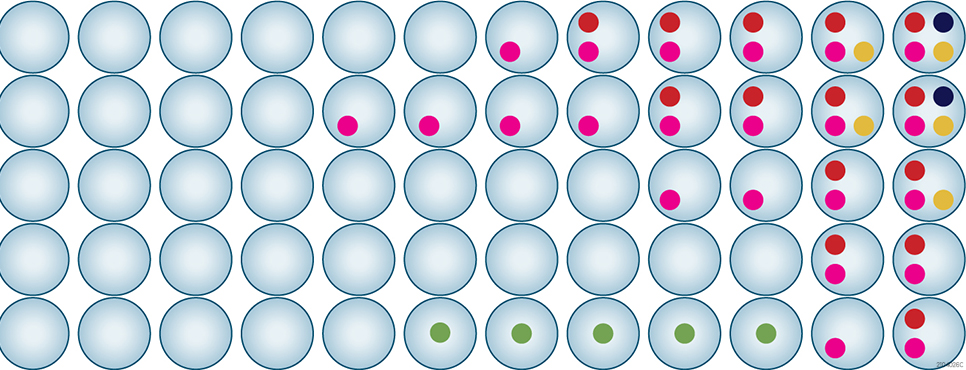Continuing Medical Education
Accreditation Statement
- Disclosure Index
- Claiming Credit for the AACR Virtual Conference: Clonal Hematopoiesis
- Commercial Support

The American Association for Cancer Research (AACR) is accredited by the Accreditation Council for Continuing Medical Education (ACCME) to provide continuing medical education activities for physicians.
Credit Designation Statement
AACR has designated this internet live activity for a maximum of 7.0 AMA PRA Category 1 Credit(s)™. Physicians should only claim credit commensurate with the extent of their participation in the activity.
Credit certification for individual sessions may vary, dependent upon compliance with the ACCME Accreditation Criteria. The final number of credits may vary from the maximum number indicated above.
Claiming CME Credit
Physicians and other health care professionals seeking AMA PRA Category 1 Credit(s)TM for this live continuing medical education activity must complete the online CME Request for Credit Survey by Thursday, September 30, 2021. Certificates will only be issued to those who complete the survey. Your CME certificate will be sent to you via email after the completion of the activity.

Successful completion of this CME activity, which includes participation in the evaluation component, enables the participant to earn up to 7.0 Medical Knowledge MOC points in the American Board of Internal Medicine’s (ABIM) Maintenance of Certification (MOC) program. Participants will earn MOC points equivalent to the amount of CME credits claimed for the activity. It is the CME activity provider’s responsibility to submit participant completion information to ACCME for the purpose of granting ABIM MOC credit.
Statement of Educational Need, Target Audience, and Learning Objectives
Clonal Hematopoiesis (CH) is defined as acquired somatic mutations (most often in genes associated with hematologic malignancies) in hematopoietic stem cells that confer a fitness advantage giving rise to a clonal expansion of this subpopulation of cells in individuals without a hematologic malignancy. CH is often seen in the aging population where a subset of circulating blood cells are derived from a somatically mutated progenitor stem cell.
In nearly two-thirds of clonal hematopoiesis, DTA mutations are observed – that is, the somatic mutations occur in DNMT3A, TET2, or, ASXL1, genes involved in DNA methylation and chromatin regulation. Other non-DTA mutations in genes like JAK2, PPM1D, splicing factors, and others can also account for clonal hematopoiesis.
CH naturally occurs as we age. CH is present in less than 1% of healthy individuals under the age of 40. A detectable clone was present, however, in about 10-20% of individuals aged 70 years or older.
CH is not a malignant state itself and does not result in clinically relevant changes in blood counts. However, CH most certainly has clinical implications. CH is often considered a premalignancy conferring an increased risk in the development of hematologic malignancies. In fact, population studies over time have shown that CH was associated with an approximate 10-fold increase in the relative risk of developing hematologic malignancies such as acute myeloid leukemia (AML), myelodysplastic syndrome (MDS), myeloproliferative neoplasms (MPNs), and some lymphomas. Additionally, the presence of CH in individuals that received chemotherapy or radiotherapy for a solid tumor led to an increase in the risk for developing therapy-related MDS and AML.
There are also many non-malignant health consequences associated with CH. Immune effector cells derived from mutated hematopoietic stem cells in CH could potentially alter baseline inflammation or the immune response. This has many potential downstream effects. CH is also associated with an increased risk of cardiovascular disease.
The study of CH as a premalignant state is incredibly important in understanding the etiology and potential prediction and prevention of hematologic malignancies. The additional implications in cardiovascular health, aging, inflammation, immune response, and mortality further underscore the importance of understanding the biology and potential clinical management CH.
The conference was designed to span bench to bedside topics and include basic and translational cancer research presented and discussed with clinical consequences and future directions in mind. We anticipate that the scope of this program will be a draw to researchers, practicing oncologists, physicians, and health care providers.
After participating in this CME activity, physicians should be able to:
- Demonstrate an understanding of the biology of clonal hematopoiesis including the various somatic mutations that can arise in hematopoietic stem cells to drive clonal expansion.
- Provide examples of large population-based studies to better understand clonal hematopoiesis, its prevalence, and clinical impact.
- Identify non-blood cancer health consequences of clonal hematopoiesis.
- Discuss opportunities for future clinical trial design, clinical management, and drug development.
Disclosure Statement
It is the policy of the AACR that the information presented at AACR CME activities will be unbiased and based on scientific evidence. To help participants make judgments about the presence of bias, AACR will provide information that Scientific Program Committee members and speakers have disclosed about financial relationships they have with commercial entities that produce or market products or services related to the content of this CME activity. This disclosure information will be made available in the Program/Proceedings of this conference.
Acknowledgment of Financial or Other Support
This activity is supported by Professional Educational Grants which will be disclosed at the meeting.
Questions about CME?
Please contact the Office of CME at (215) 440-9300 or [email protected].
